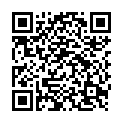|
|
|
| Module code: E103 |
|
3V+1U (4 hours per week) |
|
5 |
| Semester: 1 |
| Mandatory course: yes |
Language of instruction:
German |
Assessment:
Written examination, graded project work
[updated 10.03.2010]
|
E103. Biomedical Engineering, Bachelor, ASPO 01.10.2011
, semester 1, mandatory course, course inactive since 28.11.2013
E103 Electrical Engineering, Bachelor, ASPO 01.10.2005
, semester 1, mandatory course
|
60 class hours (= 45 clock hours) over a 15-week period.
The total student study time is 150 hours (equivalent to 5 ECTS credits).
There are therefore 105 hours available for class preparation and follow-up work and exam preparation.
|
Recommended prerequisites (modules):
None.
|
Recommended knowledge:
None
[updated 10.03.2010]
|
Recommended as prerequisite for:
|
Module coordinator:
Prof. Dr. Bernd Heidemann |
Lecturer:
Prof. Dr. Bernd Heidemann
[updated 10.03.2010]
|
Learning outcomes:
Students will acquire the skills and techniques needed to analyse and understand the structure of technical products, and to represent these products at different levels of abstraction using system categorization, functional structures and engineering drawings.
With the knowledge they acquire about the product development process, students will be in a position to systematically plan and tackle product development tasks.
[updated 10.03.2010]
|
Module content:
1.Technical products
1.1 Utility and prestige values of technical products
1.2 The lifecycle of technical products and the main component phases
1.3 The systematic categorization of technical products
2.Standardized representation of technical products
2.1 Fundamentals of engineering drawing: parallel projections, views and
projections sections, dimensions, individual parts and assembly drawings
2.2 Tolerances and systems of fits
3.The product development process – Sub-processes and methods
3.1 Task clarification and definition, compilation of requirements list
3.2 Conceptual design and planning: specify functions, identify solutions,
develop variants
3.3 Engineering design: The ‘simple, clear and safe’ rule
4.Fundamentals of engineering mechanics – Engineering statics
4.1 Definition of force and moment
4.2 Central and general force systems
4.3 Equilibria involving rigid bodies
4.4 Bearing reactions in simple, level, load-bearing structures
4.5 Static and kinetic friction
5.Basics of engineering materials
5.1 Material function: The terms ‘hardness’ and ‘rigidity’
5.2 Tensile testing and characteristic mechanical parameters of materials
5.3 The basic types of loading: tensile/compressive loading, bending and
torsion
6.Designing and calculating selected element in mechanical systems
6.1 Connector elements
6.2 Bearing elements
[updated 10.03.2010]
|
Teaching methods/Media:
Lecture notes with material for in-class exercises and follow-up work, visual aids, video projector, blackboard
[updated 10.03.2010]
|
Recommended or required reading:
Gross, D.; Hauger W.; Schnell, W.: Technische Mechanik – Statik. Springer-Verlag, Berlin, 1988
Decker, Karl-Heinz: Maschinenelemente. Carl Hanser Verlag, München, 2002
Ehrlenspiel, Klaus: Integrierte Produktentwicklung. Carl Hanser Verlag, München, 2003
[updated 10.03.2010]
|


